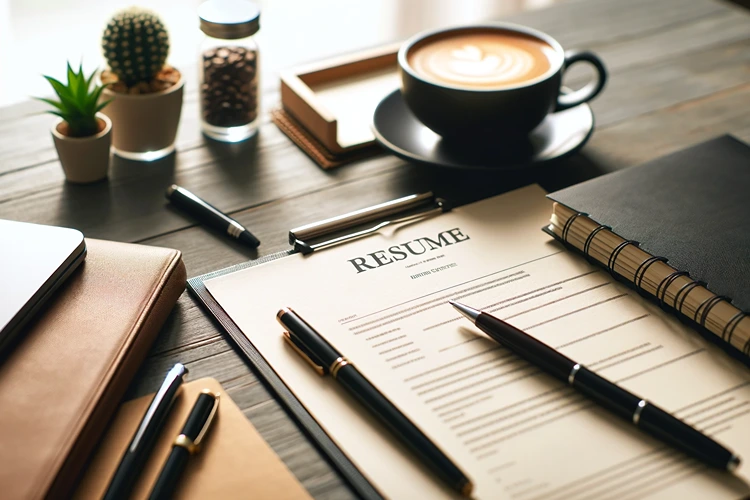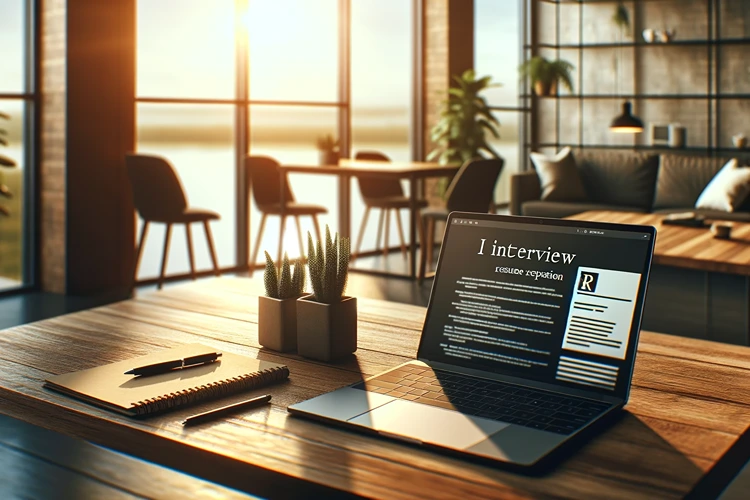Walking into a job interview can feel like stepping onto a stage. The spotlight is on you, and it’s your moment to shine. But how do you ensure that you not only shine but also leave a lasting impression? Preparing for job interviews is key. From understanding the role and company to practicing your answers and perfecting your body language, every detail contributes to your performance. Let’s dive into how you can prepare for a job interview to stand out from the competition and secure your dream job.
The Importance of Research
Before you can impress in an interview, you need to know whom you’re impressing. Researching the company and the role you’re applying for is foundational to your preparation.
- Understand the Company Culture: Company websites, social media pages, and recent news articles can provide insights into the company’s values, mission, and recent achievements. Aligning your answers to reflect their values can set you apart.
- Role Requirements: Go beyond the job description. Look at similar roles within the company or industry to understand broader expectations and challenges you might discuss during the interview.
Helpful Hint:
Use LinkedIn to find current employees in similar roles and reach out for informational interviews. This can provide insider knowledge on what the company values in its team members.
Reviewing the Job Description
The job description is your cheat sheet for the interview. It outlines not only the skills and experience required but also provides hints about what interviewers might prioritize.
- List Key Qualifications: Identify the top skills and experiences listed and prepare examples from your past that demonstrate these qualifications.
- Identify Soft Skills: Many companies value soft skills like teamwork, leadership, and problem-solving. Prepare scenarios where you’ve exemplified these skills.
Crafting Your Responses

Mastering your interview responses involves more than memorizing answers; it’s about conveying your story, skills, and suitability for the role in a compelling way.
Common Interview Questions
- “Tell me about yourself.” Begin with a brief overview of your professional background, touch on a few career highlights that show your trajectory, and conclude with why you’re excited about this opportunity. This narrative arc keeps your answer focused and relevant to the position at hand.
- “Why do you want to work here?” This question is your chance to show that your values align with the company’s. Discuss how your professional aspirations match the company’s goals, culture, or projects, showing that you’ve done your homework and are genuinely interested in being part of their team.
Tackling Behavioral Questions with the STAR Method
Behavioral questions are pivotal as they allow interviewers to understand how you’ve handled real-life challenges. Employing the STAR method structures your answers into coherent stories, thus ensuring you effectively demonstrate your skills and experiences. When preparing for job interviews, mastering the STAR method can greatly enhance your responses and increase your chances of impressing potential employers.
- Situation: Set the scene with enough context so the interviewer understands the background. Be concise but detailed enough to illustrate the complexity of the situation.
- Task: Clearly define your responsibilities or what was at stake. This helps the interviewer grasp the importance of the scenario you’re describing.
- Action: This is the heart of your response. Detail the specific actions you took to address the situation. Focus on your contributions rather than the team’s efforts to highlight your competencies and decision-making skills.
- Result: Close with the outcome of your actions. Whenever possible, quantify your success with metrics or tangible results to provide concrete evidence of your impact and capabilities.
First Impressions Matter
The adage “You never get a second chance to make a first impression” holds particularly true in job interviews. From the moment you step into the room, your appearance, demeanor, and body language begin to tell your story.
Dressing for Success
- Corporate Roles: Lean towards conservative, formal attire unless you have information suggesting the company takes a more modern approach.
- Creative or Startup Roles: Business casual is often appropriate, but it still means clean, well-fitted, and situation-appropriate clothing.
Body Language and Etiquette
- Posture: Stand and sit straight; slouching can be perceived as a lack of confidence or interest.
- Eye Contact: Maintain eye contact when speaking or listening, but remember, there’s a fine line between engaging and staring.
- Handshake: A firm handshake can convey confidence. Even in a more casual workplace, this small gesture can set a positive tone for the interaction.
Leveraging Digital Tools
In today’s digital age, your online presence can be as important as your in-person presentation. Use digital platforms to your advantage in preparing for your interview.
Utilizing LinkedIn
Ensure your LinkedIn profile is up-to-date, with a professional photo and detailed sections that mirror the strengths and accomplishments you’ll discuss in your interview. Research your interviewers to tailor your discussion points.
Online Presence Check
Google yourself to ensure your public profiles reflect a professional image. Adjust privacy settings or curate content that showcases your professional interests.
Mock Interviews and Feedback
Practice makes perfect. Conduct mock interviews with a friend or mentor, covering a range of questions. Seek honest feedback to refine your answers and presentation.
Helpful Hint:
Consider online platforms offering mock interview services with professionals from your industry for targeted feedback.
Pros and Cons of Different Interview Preparation Strategies
Pros
- Comprehensive Research: Provides a deep understanding of the company and role, enabling tailored responses that resonate with interviewers.
- Practicing with the STAR Method: Offers a structured approach to answering behavioral questions, highlighting your problem-solving skills and achievements.
- Utilizing Digital Tools: Enhances your online presence and allows for better networking opportunities and insights into the company culture.
Cons
- Over-Preparation: Risks sounding rehearsed or inauthentic if responses are too polished or if too much emphasis is placed on anticipated questions.
- Underestimating the Importance of Soft Skills: Focusing too heavily on technical preparation can neglect the demonstration of interpersonal and cultural fit.
- Overreliance on Digital Impressions: While an online presence is important, neglecting in-person impression management strategies can be detrimental.
Day of the Interview

Prepare a checklist for the interview day, including confirming directions, outfit preparation, document organization, and reviewing your notes. Engage actively with the interviewer, listen attentively, and respond with clarity. Send a personalized thank-you email within 24 hours to express your gratitude and interest.
Helpful Hint:
Prepare thoughtful questions to ask at the end of the interview, showing your interest in the role and commitment to the company.
FAQs
Wrapping Up
Preparing for a job interview is about more than rehearsing answers; it’s about understanding the company, aligning your skills with their needs, and presenting yourself as the best candidate for the role. By following this guide on preparing for job interviews, you equip yourself with the knowledge and strategies needed to make a memorable impression. Approach your next job interview with confidence, knowing you’ve done everything possible to prepare for success, fully embracing the essence of preparing for job interviews to achieve your career goals.
